If you’ve ever been curious about how many eggs a hen can lay, you’ve come to the right place. This article provides the ultimate guide to chicken husbandry, including the answer to the question: how many eggs can a hen lay? Read on for more information about the egg-laying capabilities of chickens and other helpful tips for keeping chickens as pets.
Factors Affecting the Number of Eggs a Hen Can Lay
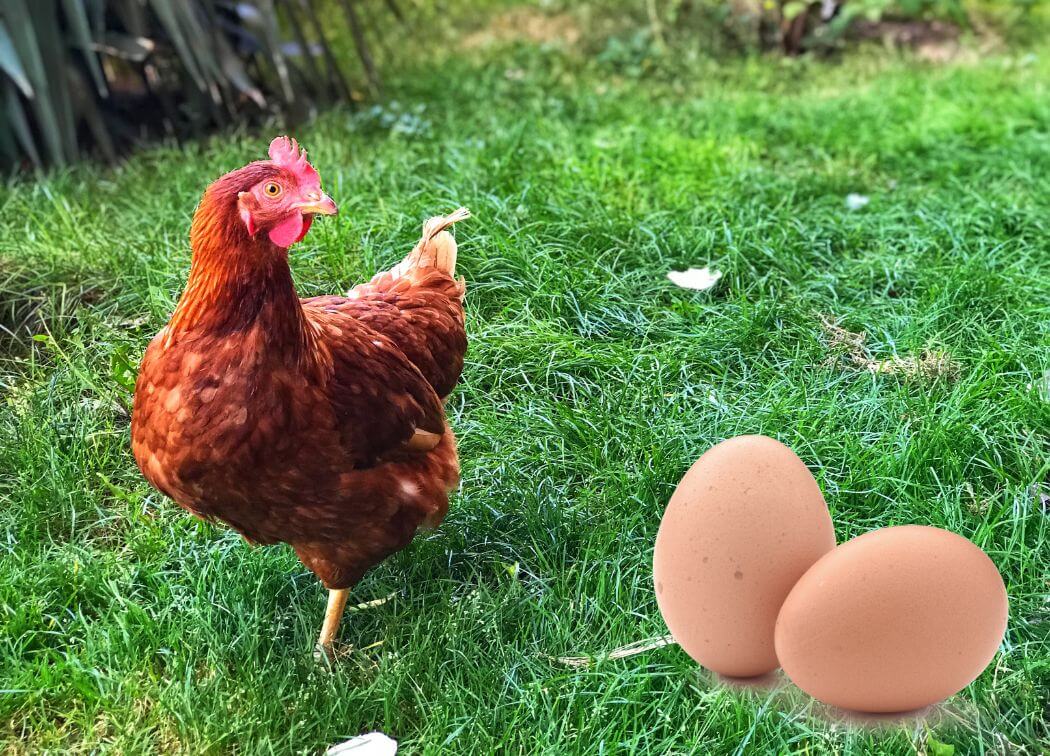
Age
The number of eggs a hen can lay varies depending on her age. In the first year of her life, a chicken may be able to lay around 100-150 eggs. After the first year, the number will start to decline steadily. The number of eggs a hen can lay also depends on her breed. Some breeds can lay over 300 eggs per year, while others may only lay around 150 eggs.
Breed
The breed of chicken can also affect the number of eggs a hen can lay. Some breeds, such as Leghorns, are known for their high egg production. These chickens can lay up to 300 eggs in a single year. Other breeds, such as Rhode Island Reds, are not known for their egg-laying abilities and may only lay around 150 eggs in one year.
Season
The season can also affect the number of eggs a hen can lay. In the winter months, the number of eggs a hen can lay will be lower than in the summer months. Hens are typically less productive in the winter months due to lower temperatures and shorter days. In the summer, a hen can lay up to 8 eggs per week.
Overall, the number of eggs a hen can lay in a single year can range from 100-300, depending on her age, breed, and season. To maximize the number of eggs a hen can lay in a year, it is important to provide her with a healthy and balanced diet and the proper housing conditions. With the right care, a hen can lay up to 8 eggs a week, adding up to over 300 eggs in one year.
How Many Eggs Does a Hen Lay in a Month?
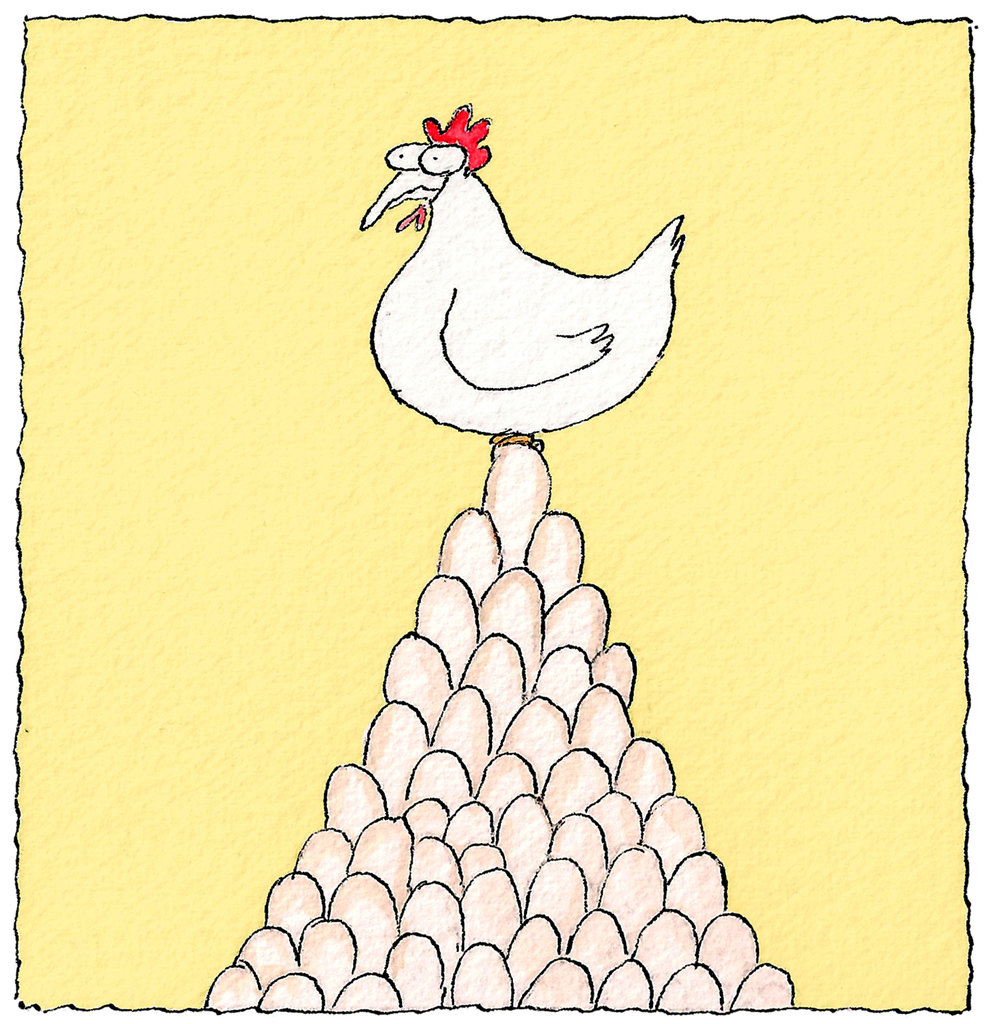
The number of eggs a hen will lay in a month depends on several factors, such as breed, season, and health. Typically, a healthy hen will lay 4-7 eggs per week, or between 16-28 eggs per month. That said, some hens may lay more, while others may lay fewer.
Season has a major impact on the number of eggs a hen will lay in a month. In the spring, a hen’s body is naturally preparing for the breeding season, which increases her egg production. During the summer and fall, a hen may lay fewer eggs due to the heat.
Age is another factor to consider when determining how many eggs a hen will lay. Generally, hens start laying eggs between 18-24 weeks of age, and their production will peak between 24-36 weeks. After a year, a hen’s egg production will start to decline.
Health is key to a hen’s egg production. A healthy hen will lay more eggs than a hen that is not receiving proper nutrition or has been exposed to disease.
Below is a table of the average number of eggs a hen will lay per month, depending on her age, breed, and health:
| Age | Breed | Health | How Many Eggs in a Month? |
|---|---|---|---|
| 18-24 weeks | Light | Good | 12-20 eggs |
| 24-36 weeks | Heavy | Good | 20-30 eggs |
| 36+ weeks | Light | Poor | 8-15 eggs |
When it comes to how many eggs will a hen lay, the short answer is that it depends on the individual hen. By understanding the factors that affect a hen’s egg production, you can get an idea of how many eggs she will lay in a month.
Ultimately, the best way to ensure that your hen is laying the most eggs possible is to provide her with a proper diet and a comfortable living space.
How Many Eggs Does a Hen Lay in a Week?
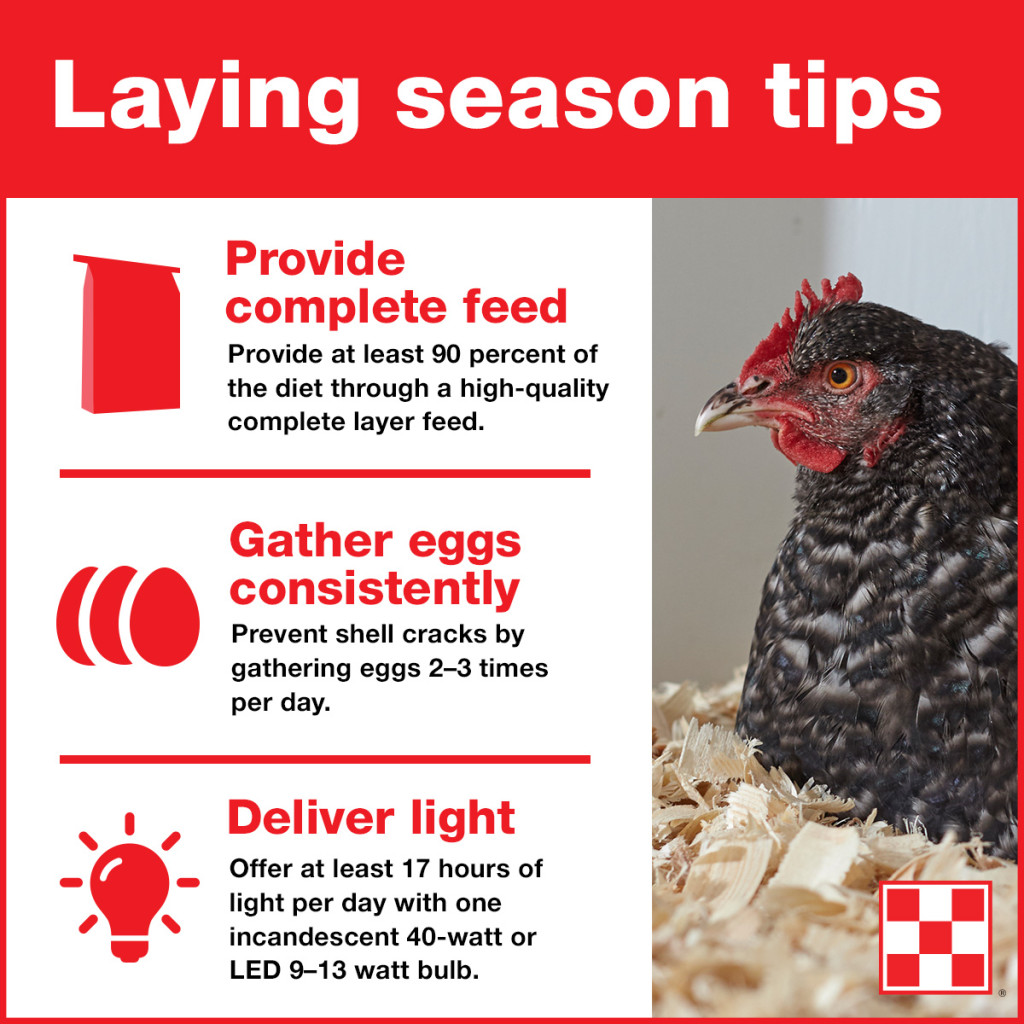
Most hens lay between 3-7 eggs per week. Depending on the breed, age, and season, some hens can lay up to 10 eggs per week.
- Younger Chickens: Chickens usually start laying eggs between 18-24 weeks of age, but this depends on the breed. During the first months, they may lay as few as one egg per week.
- Older Chickens: Once the hens reach two years old and older, they will usually lay fewer eggs. But hens can lay eggs up until the age of 10 years old.
- Season: Hens usually lay more eggs during the warmer months, and fewer eggs during the cold winter months. Breeds such as Orpingtons and Plymouth Rocks tend to lay more eggs in the winter than other breeds.
- Diet: The quality and quantity of a hen’s diet can affect the number of eggs she lays. Hens need a balanced diet with plenty of protein, calcium, and vitamins to produce eggs.
Egg Production Cycles: Most hens lay eggs in cycles, usually producing the most eggs in the first 6-7 months and then decreasing in the following months. Some hens may take a break from laying eggs for a few weeks and then start laying again.
Signs of Stress: If a hen is too stressed, she may stop laying eggs for a period of time. Stressors can include changes in diet, environment, or predators. It’s important to keep hens in a safe, comfortable environment to help them stay productive.
Conclusion: On average, most hens lay between 3-7 eggs per week, but this can vary depending on the breed, age, and season. Hens need a balanced diet and a safe, comfortable environment in order to produce eggs.
How Many Eggs Will a Hen Lay?
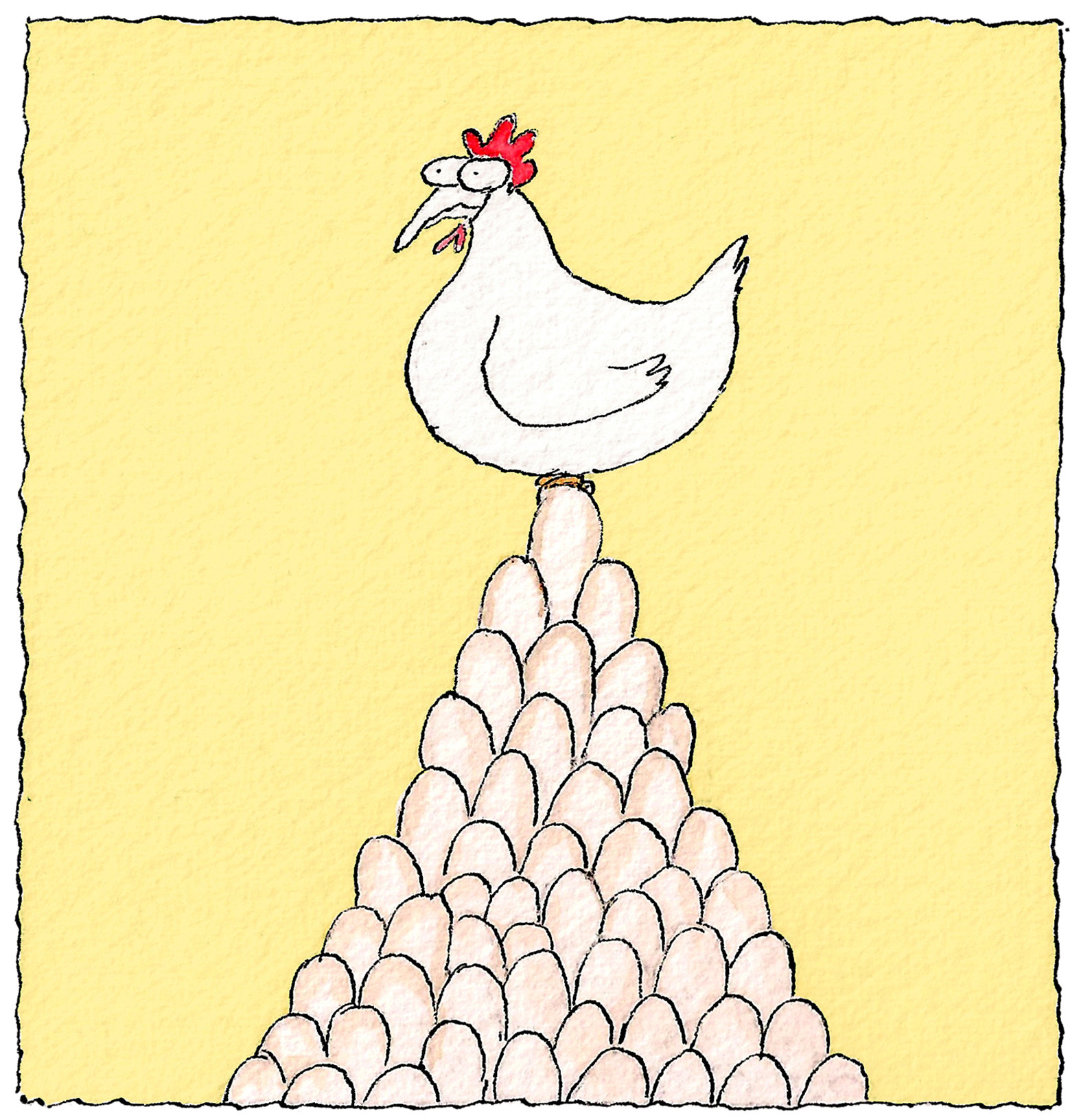
On average, each hen will lay up to 300 eggs a year. This can vary greatly depending on the breed, age, health, and other factors. The peak egg-laying time for most hens is between spring and early summer. During this time, a hen can lay 1-2 eggs per day.
- Breed: Different breeds of chickens will lay different numbers of eggs. For example, Easter Eggers and Leghorns are two breeds that lay many eggs, while Silkies and Cochins lay fewer.
- Age: A young hen (less than one year old) will lay fewer eggs than an older hen. A hen that is over two years old will lay fewer eggs than a younger one.
- Health: A hen that is in good health will lay more eggs than one that is not. Stress, lack of food or water, illness, and other factors can reduce the number of eggs a hen lays.
- Season: Hens tend to lay more eggs during the spring and summer months when there is more light. In the winter months, they may not lay as many eggs.
It is also important to note that some hens will lay eggs even if they do not have a rooster present. This is known as “clutching” and is a natural behavior for hens. Clutching is usually done in the early spring, and the eggs will not be fertile.
Although it is impossible to predict exactly how many eggs a hen will lay in a year, it is safe to say that a healthy, well-cared for hen will lay around 300 eggs a year.
How Many Eggs Can a Hen Lay?

- A healthy hen can lay up to 250 eggs in a year.
- A hen usually starts laying eggs at the age of five months.
- Eggs of different breeds of chickens vary in size. Some breeds lay smaller eggs, while others lay larger eggs.
- Hens are seasonal layers which means that the number of eggs they lay varies according to the time of year.
- A hen typically lays one egg every twenty-four hours.
- The number of eggs a hen can lay in one year depends on the breed, age and diet of the hen.
- A hen will generally lay the most eggs in spring and summer and fewer in autumn and winter.
- The number of eggs a hen can lay in a year can range from 50 to 300.
- A good diet and adequate lighting can help a hen lay more eggs in a year.
Providing your chickens with the best care and nutrition can help them lay more eggs in a year. On average, a healthy hen can lay up to 250 eggs in a year, but the exact number of eggs a chicken will lay in a year can vary depending on its breed, age and diet.
How Many Eggs Will a Chicken Lay?
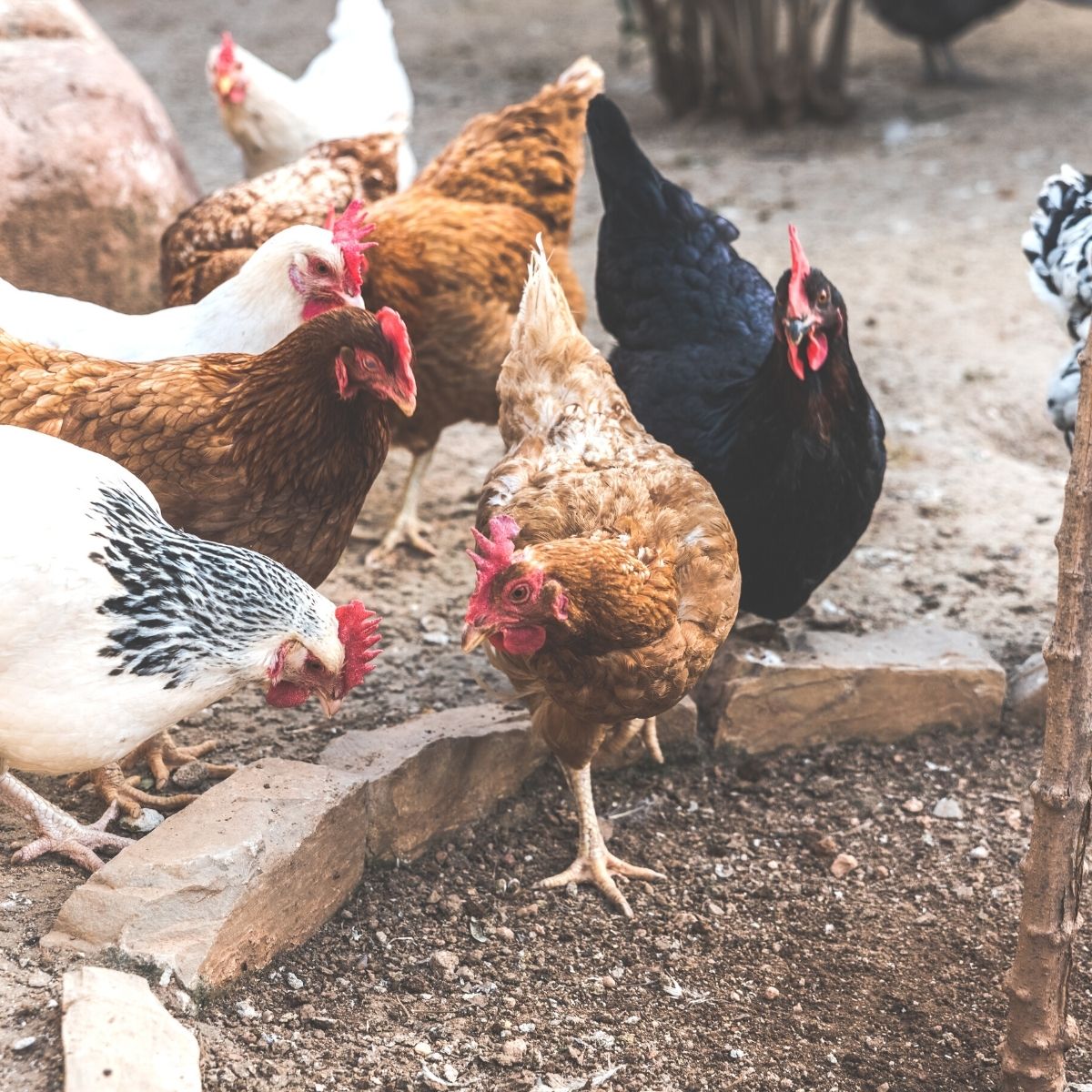
Chickens are prolific egg-layers and make excellent backyard pets. They lay eggs over a period of several months, with the average laying season lasting six months. The amount of eggs a chicken lays will depend on the breed, age, and health of the bird.
Here are some interesting facts about egg-laying chickens:
- A hen will lay an average of 4-5 eggs per week during its peak laying season. The amount of eggs a chicken will lay in a week can vary depending on the breed and other factors such as age and nutrition.
- A single chicken can lay up to 200 eggs per year. Many breeds of chickens can lay 200 eggs or more in a single year.
- The number of eggs a chicken can lay declines as it gets older. As they age, chickens typically lay fewer eggs, with some breeds slowing down as early as two years of age.
- Hens can lay eggs without a rooster present. While a rooster is necessary for fertility, a hen can still lay eggs without a rooster present.
- The color of the eggs laid by a chicken is determined by the breed. Different breeds of chickens lay eggs in different colors, ranging from white to blue and green.
With proper care and nutrition, a chicken can lay between 180 and 200 eggs in a year. To ensure your chicken is healthy and has a good laying season, make sure to provide it with a balanced diet, plenty of fresh water, and a comfortable nesting box.
How Many Eggs Will a Chicken Lay in a Year?

The number of eggs a single chicken can lay in one year depends on several factors. These include the breed, age, and health of the chicken, as well as the quality of its feed and the number of hours of daylight it receives. Generally, a healthy chicken can lay between 150 and 300 eggs in a year, but some breeds may lay fewer or more depending on the above factors.
Factors That Affect How Many Eggs a Hen Will Lay in a Year
- Breed: Some breeds of chickens are known to be prolific egg layers and can lay up to 300 eggs in a year. Other breeds may lay as few as 100 eggs in a year.
- Age: Hens typically start laying eggs at around 18 weeks of age, but the number of eggs they lay will increase as they get older. A hen can lay up to 250 eggs in a year when she reaches her peak egg-laying age, which is typically around one to two years old.
- Health: A healthy chicken will lay more eggs than one that is in poor health. Chickens should be monitored regularly for signs of illness or injury, and any issues should be addressed promptly to ensure they are in the best possible health.
- Feed: A chicken’s diet should be high in protein and calcium, as these are both essential for egg production. Chickens should also have access to a balanced diet of vegetables, fruits, and grains for optimal egg production.
- Hours of Daylight: Chickens require a certain number of hours of daylight in order to lay eggs. The exact number of hours depends on the breed, but generally, a minimum of 14 hours of daylight is required for a chicken to lay eggs.
By taking these factors into account, you can get an idea of how many eggs a hen can lay in a year. As a general rule of thumb, a healthy chicken can lay between 150 and 300 eggs in a year.
How Many Eggs Can a Chicken Lay in a Year?
A chicken can lay a maximum of between 250 to 300 eggs in a year. This is dependent on a number of factors such as the breed of the chicken, its age, the season, and its health. The most productive chickens, known as “layers”, can lay up to 300 eggs in a year.
How many eggs does a hen lay in a month? Generally, a healthy hen will lay up to 8 eggs a month. During the summer months, chickens can lay up to 10 or 12 eggs a month.
How many eggs does a hen lay in a week? Depending on the breed and health of the chicken, you can expect it to lay between one and four eggs a week. During the summer months, chickens can lay up to five or six eggs a week.
How many eggs will a hen lay? Generally, a healthy hen will lay up to 8 eggs a month and up to four eggs a week. During the summer months, chickens can lay up to 10 or 12 eggs a month and up to five or six eggs a week.
How many eggs can a hen lay? Depending on the breed and health of the chicken, you can expect it to lay between 250 and 300 eggs in a year.
How many eggs will a chicken lay? A chicken will lay between 250 and 300 eggs in a year.
How many eggs will a chicken lay in a year? A healthy chicken can lay up to 300 eggs in a year.
How many eggs can a chicken lay in a year? A chicken can lay a maximum of between 250 to 300 eggs in a year.
How Many Eggs Can a Hen Lay in a Year?
A healthy hen can lay up to five eggs a week, which adds up to around 250 eggs in a year. It is not uncommon for a hen to lay even more eggs than this, some have been known to lay up to 300 eggs in a single year. The amount of eggs a hen lays can depend on a variety of factors, such as the breed of the chicken, the hen’s age, and the environment they are in.
Generally, the younger hens lay more eggs than the older ones, and hens of a certain breed can lay more eggs than other breeds. For example, Leghorn chickens are known to lay the most eggs, while Orpington hens lay fewer eggs. The amount of eggs a hen lays can also depend on the season. During the summer months, hens tend to lay more eggs than in the winter months.
Finally, the environment that a hen is in can also affect how many eggs she lays. If a hen is kept in a clean, comfortable, and stress-free environment, she is likely to lay more eggs than if she were kept in a dirty, cramped, and stressful coop.
Overall, it is difficult to give an exact number of eggs a hen can lay in a year, as it can vary depending on a number of factors. However, a healthy hen is likely to lay between 250 and 300 eggs in a year.
Frequently Asked Questions
Is there an Age or Size Limit on How Many Eggs a Hen Can Lay?
No, there is no age or size limit on how many eggs a hen can lay. Hens can lay eggs from the time they are around 18 weeks old until they reach the age of 5 to 10 years old. However, the amount of eggs a hen can lay will decrease as they age due to their declining fertility. Additionally, the size of the hen does not affect the amount of eggs they can lay, as they lay the same size egg regardless of their size.
Are There Any Health or Nutrition Considerations to Keep in Mind When Allowing a Hen to Lay Eggs?
- Calcium Intake: Hens require a high amount of calcium in order to produce strong, healthy eggs. This can be provided through a diet high in leafy greens, or supplemented with a calcium supplement.
- Protein: Hens need to consume a diet high in protein in order to produce eggs. A healthy diet should include plenty of sources of protein such as grains, nuts, and legumes.
- Vitamins & Minerals: Hens need a variety of vitamins and minerals in their diet in order to maintain their health. A balanced diet should include plenty of fruits and vegetables, as well as a vitamin supplement.
- Water: Hens need access to clean water at all times in order to produce eggs. Water should be changed regularly to prevent the spread of disease.
Are there any environmental factors that might affect a hen’s egg-laying rate?
Yes. Environmental factors such as light, temperature, nutrition, and stress can all have a profound effect on a hen’s egg-laying rate.
- Light: Chickens need 14-16 hours of light each day to lay eggs. During the winter, when days are shorter, chickens may lay fewer eggs. Adding artificial light can help, but too much light can also cause hens to stop laying.
- Temperature: Temperature can also affect a hen’s egg-laying rate. If the temperature is too hot, it can cause stress and a decrease in egg production. The ideal temperature for egg-laying is between 16-21°C (60-70°F).
- Nutrition: Nutrition is also an important factor when it comes to egg production. A hen needs a balanced diet of proteins, carbohydrates, fats, vitamins, and minerals to produce enough eggs. If the hen is not getting enough of any of these essential nutrients, it can lead to a decrease in egg production.
- Stress: Stress can also have a significant impact on a hen’s egg-laying rate. Stress can be caused by overcrowding, loud noises, predators, or anything else that causes fear or anxiety in the hen. Reducing stress as much as possible is essential for maintaining a healthy egg-laying rate.
By taking these environmental factors into consideration, you can ensure that your hens are getting the best possible conditions for optimal egg production.
What kind of care is necessary to ensure a hen is able to lay eggs regularly?
Hens require a balanced diet of grains and protein, with free access to fresh water and a source of calcium to ensure healthy egg production. They also need a safe, clean environment to thrive, with enough space for foraging and dust bathing. In addition, hens should have 12-14 hours of light per day to promote egg laying. Lastly, regular health checkups with a vet can help ensure your hens remain in optimal condition for egg production.
Are There Any Common Signs That a Hen Is Not Producing Eggs as Expected?
Signs of decreased egg production in hens include: loss of appetite, reduced comb size and color, less energy, and fewer eggs laid. It is also possible that a hen may produce fewer eggs than normal due to stress, illness, or a change in environment. If a hen is not producing eggs as expected, consult a veterinarian for further diagnosis and treatment.
Conclusion
On average, a chicken can lay between 150 and 300 eggs per year. However, the rate of egg production can vary greatly depending on the breed and age of the chicken. Proper nutrition, age, and housing are all key factors in determining how many eggs a hen can lay. With proper husbandry practices, a chicken can lay eggs for many years.
References
